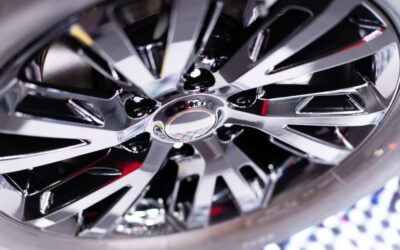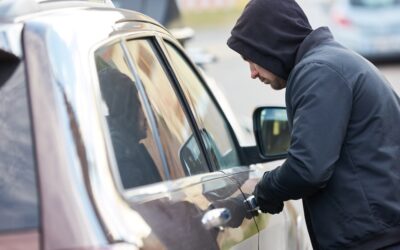Road Tax was actually abolished in 1937 and replaced by Vehicle Excise Duty, but some people do still call it Road Tax. It’s illegal to drive without your vehicle being taxed. However, there are some scenarios where driving without vehicle tax is unavoidable.

But before we look at what the law has to say about driving without tax, first let’s revisit what vehicle tax is – and what it isn’t.
Read our complete guide to vehicle tax here. We explain what vehicle tax is, why it’s collected, and how much you’ll have to pay. We also explore a few (very rare) situations in which you’ll be exempt from vehicle tax.
So now that we’re all up to speed on vehicle tax, let’s take a look at what UK law says about this issue!
Driving Without Tax & UK Law
UK law says that all vehicles registered in the UK, or parked on UK roads, must be taxed. The DVLA used to issue tax discs that you had to display in your car. These days all tax records are stored in a central database.
So if you don’t pay your vehicle tax, they’ll know. And the penalties for not paying are pretty harsh.
Vehicle Tax Penalties
If the database detects that your car isn’t taxed, you’ll automatically receive a warning letter and a fine of £80. You can get a 50% discount if you pay this fine within 28 days.
But if you fail to settle the fine, you’ll be prosecuted. You’ll have to attend a court hearing, and you’ll face a maximum penalty of £1,000. You’ll also have to pay all relevant court costs.
Clamping Untaxed Vehicles
The DVLA also has the power to clamp untaxed vehicles. In this case, they’ll unclamp your vehicle if you purchase valid tax within 24 hours. Otherwise, you must pay a fee of £100. Fail to do either of these and you’ll have to pay a surety deposit. For cars and motorbikes, this stands at £160. But for other types of vehicles it can be up to £700.
Insurance Invalidation
You also run the risk of invalidating your insurance, or having a claim rejected if you break the law by failing to tax your vehicle.
Impounding Untaxed Cars
Your car could even be impounded if you go too long without paying your car tax. It costs £200 to release impounded vehicles, and you’ll have to pay an additional £21 for each day you were impounded. All of this on top of your clamping fees, prosecution costs, and fines. Tax avoidance doesn’t pay.
So honestly? In every case, it’s cheaper to pay for the car tax than to risk the inevitable penalties.
But When Can You Drive Without Vehicle Tax?
As we explained in our guide to vehicle tax, some car owners have to apply for their vehicle tax but are exempt from paying. You may be exempt if you:
- Drive a zero-emission car that cost less than £40,000.
- Have a disability and receive certain types of benefits.
- Drive a “historic” vehicle, more than 40 years old.
- You no longer drive your car, and you’ve applied for a Statutory Off-Road Notification (SORN) to confirm that your car’s not in use.
You can learn more about who’s exempt by reading our guide.
Beyond this, there are some situations where it’s effectively unavoidable to drive without tax. The good news is that the law recognises these situations. The bad news is that there’s only really one situation where this is allowed – and that’s when you’re driving to a pre-booked MOT test.
Now, the law doesn’t specify how far you can travel without tax to get your MOT test. But if you travel an excessive distance, or if you make multiple stops along the way, then the law will likely decide that you’ve been using your car for other purposes. Your exemption therefore won’t apply, but all the penalties for driving without tax will.
What If I’m Buying a New or Used Car?
By law, cars must be taxed at the point of sale. If you buy a brand new car, or even a used car from a dealership, they’ll usually tax it for you – either online or over the phone – before you drive away.
When someone sells their car, their car tax is not transferred to the new owner. So if you buy a used car, it will be untaxed. However, the seller should provide you with the car’s logbook, otherwise known as the V5C registration certificate. You can use this certificate to tax the car online, and you should ideally do so before you even drive home.
Is Your Car Tax Up to Date?
Are you worried that your car tax has run out? Or that it’s about to run out?
If you need to buy car tax, head here.
Finally, remember that it’s also illegal to drive without car insurance. Read our guide to getting affordable comprehensive car insurance here.




